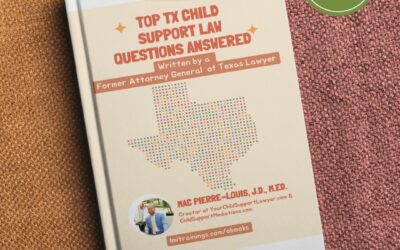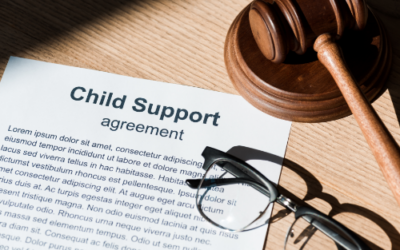FLEEING YOUR HOME STATE DOES NOT NECESSARILY END ITS JURISDICTION OVER YOU WHEN SETTING CHILD SUPPORT
Most people know that in the United States when a person flees their home state for another state to escape prosecution for a crime, the other state the person flees to has the ability to ship the person back to their home state to face justice. This is called extradition. Many people have heard about extradition and understand it’s typically used when State A lacks the legal authority to enter State B and arrest a guy fleeing State A because State A’s jurisdiction only extends to State A’s own borders. Folks understand extradition to be a procedural method to return alleged defendants back home so their home state can exercise jurisdiction over them and prosecute them under their own laws. In many criminal law cases jurisdiction cannot be had over an alleged defendant by a state until extradition is used to bring the alleged defendant back home.
But what about when the home state just wants to establish a child support order over an absent parent and that parent flees the state? Can that home state exercise jurisdiction over that parent when she is outside the state’s borders or must extradition-like procedures be used to help bring the parent back to the home state? For example, what if a parent leaves Texas for Oklahoma and begins residing there? Can she say Texas courts have no jurisdiction over her because she is outside of their borders and that they must go through some sort of extradition-like procedure, such as described in UIFSA law? NO!
In certain situations a Texas court can exercise jurisdiction over a such an absent parent without the need of Texas officials going through alternate procedures to obtain a child support order. Some common situations that may allow a Texas court to extend jurisdiction over a potential absent parent: include: the absent parent (or NCP) had resided in the past with the child in Texas; the NCP conceived (from sexual intercourse) the child in Texas; or even the NCP signed an Acknowledgement of Paternity admitting parentage over the child. These situations and several others would probably allow a Texas court to exercise jurisdiction and establish a child support order over an absent parent living outside Texas’ borders, just as if the absent parent was still living within Texas’ borders.
In certain situations a Texas court can exercise jurisdiction over a such an absent parent without the need of Texas officials going through alternate procedures to obtain a child support order. Some common situations that may allow a Texas court to extend jurisdiction over a potential absent parent: include: the absent parent (or NCP) had resided in the past with the child in Texas; the NCP conceived (from sexual intercourse) the child in Texas; or even the NCP signed an Acknowledgement of Paternity admitting parentage over the child. These situations and several others would probably allow a Texas court to exercise jurisdiction and establish a child support order over an absent parent living outside Texas’ borders, just as if the absent parent was still living within Texas’ borders.
Other situations exist, but what is important is that an NCP who is living outside Texas or outside any home state and who is served with court papers alleging he or she is responsible to begin paying child support to another parent should not assume that their home state cannot extend its jurisdictional arms out to reach them simply because they live outside their home state’s borders.
Thus there are plenty of times when alternative procedures such as UIFSA are unnecessary and a home state can simply exercise jurisdiction over an NCP who lives outside of its borders.
Thus there are plenty of times when alternative procedures such as UIFSA are unnecessary and a home state can simply exercise jurisdiction over an NCP who lives outside of its borders.
The above is for informational purposes only and does not constitute legal advice nor does it create an attorney-client relationship between the writer and reader. It is prudent to speak with an attorney before making any major legal decision.
Mac Pierre-Louis, attorney at The Law Office of Pierre-Louis & Carr, PLLC based in Houston, TX, writes about child support law issues.



